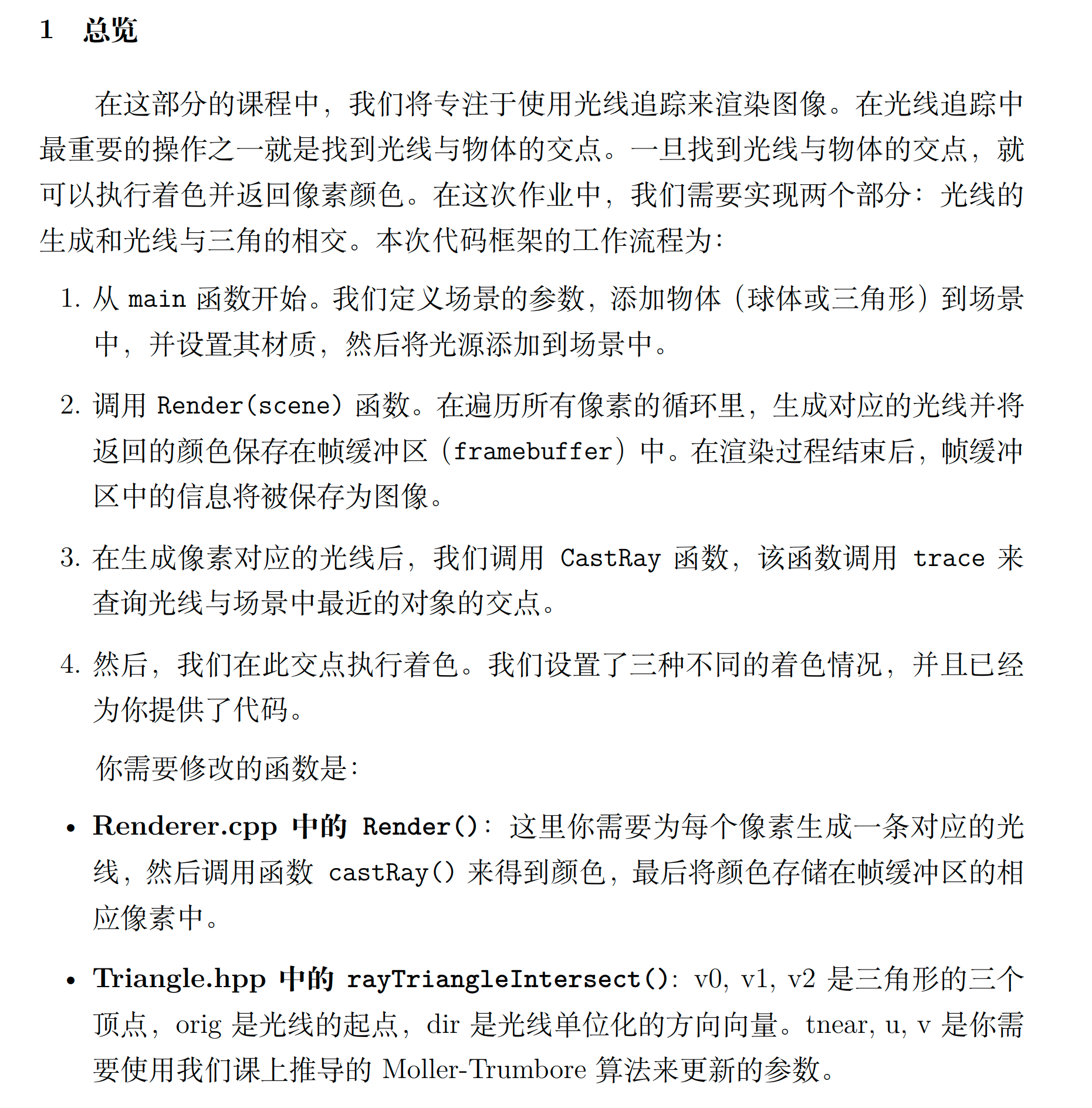CC BY 4.0 (除特别声明或转载文章外)
作业5介绍

简单来说就是,为每个像素生成光线,然后判断光线和三角形相交。我们只需要写Render()、rayTriangleIntersect(),第二个还好,直接按着课上给的算法写就好, 第一个需要把像素坐标转化为[-1,1],相当于是作业1的一个逆变换,首先压缩为[0,1],然后变成[-1,1],最后因为屏幕像素长宽不一样,所以需要乘一个长宽比, 然后视角是多少度还需要乘tan(fov/2)。视角就取决于你看到的y的大小,摄像机是有角度的。
code
bool rayTriangleIntersect(const Vector3f& v0, const Vector3f& v1, const Vector3f& v2, const Vector3f& orig,
const Vector3f& dir, float& tnear, float& u, float& v)
{
// TODO: Implement this function that tests whether the triangle
// that's specified bt v0, v1 and v2 intersects with the ray (whose
// origin is *orig* and direction is *dir*)
// Also don't forget to update tnear, u and v.
Vector3f E1 = v1-v0;
Vector3f E2 = v2-v0;
Vector3f S = orig-v0;
Vector3f S1 = crossProduct(dir,E2);
Vector3f S2 = crossProduct(S,E1);
float y = dotProduct(S1,E1);
tnear = dotProduct(S2,E2)/y;
u = dotProduct(S1,S)/y;
v = dotProduct(S2,dir)/y;
if(tnear>1e-6&&u>1e-6&&v>1e-6&&1-u-v>1e-6) {
return true;
}
return false;
}
// generate primary ray direction
float x;
float y;
x = i + 0.5;
y = j + 0.5;
x/= float(scene.width);
y/= float(scene.height);
x = 2*x - 1;
y = 1 - 2*y;
x = x*scale*imageAspectRatio;
y = y*scale;
// TODO: Find the x and y positions of the current pixel to get the direction
// vector that passes through it.
// Also, don't forget to multiply both of them with the variable *scale*, and
// x (horizontal) variable with the *imageAspectRatio*
Vector3f dir = Vector3f(x, y, -1); // Don't forget to normalize this direction!
dir = normalize(dir);
framebuffer[m++] = castRay(eye_pos, dir, scene, 0);
